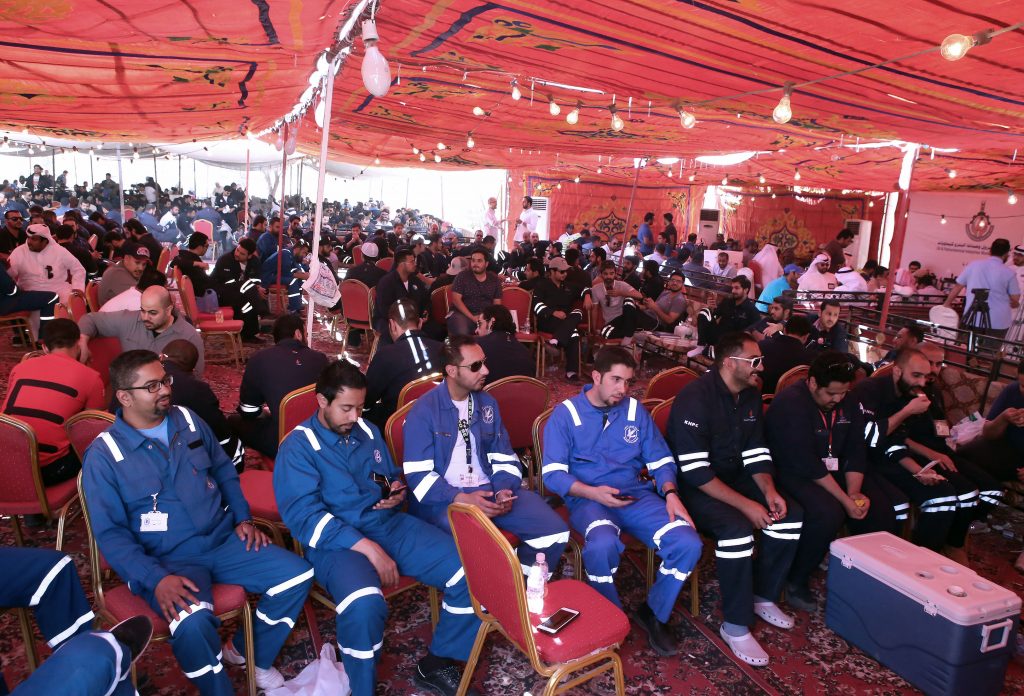
SINGAPORE (AFP) — Oil prices resumed their fall in Asia Wednesday after petroleum workers called off a strike in key OPEC producer Kuwait, quashing hopes the disruption could help ease a persistent supply glut.
Curtailed production resulting from the three-day strike in OPEC’s fourth biggest member led prices to rise Tuesday, ending a four-day losing streak.
But prices resumed their decline after the Kuwait Oil Workers Union on Wednesday ended their mass action and decided to return to work, hours after a fresh appeal by the acting oil minister.
The strike, which began on Sunday, slashed Kuwait’s crude and natural gas production by more than half.
At around 0345 GMT US benchmark West Texas Intermediate for May delivery was down 97 cents, or 2.36 percent at $40.11 a barrel while Brent crude for June fell 88 cents, 2.00 percent, to $43.15.
Prices had been on a tumble for three straight days before the world’s major crude producers met in Doha on Sunday to discuss calls to freeze output and plunged further on Monday after they failed to reach agreement.
Bernard Aw, market strategist at IG Markets Singapore, said that while the strike pointed to a momentary easing of supply conditions, the general trend of oversupply remains.
“The strike has had a very short-term impact… It’s hardly a dent to global oil production itself,” he told AFP.
“Everybody more or less knew that the strike was not going to last very long, this is just the market reacting to it.”
In Kuwait, the striking workers said they called off their mass action “in respect for the emir and in loyalty to him”. They said they would go back to work at 0400 GMT Wednesday.
Analysts will also have a keen eye on the US weekly petroleum inventory report which will be released later Wednesday to gauge demand in the world’s top oil consumer.
© 1994-2016 Agence France-Presse







